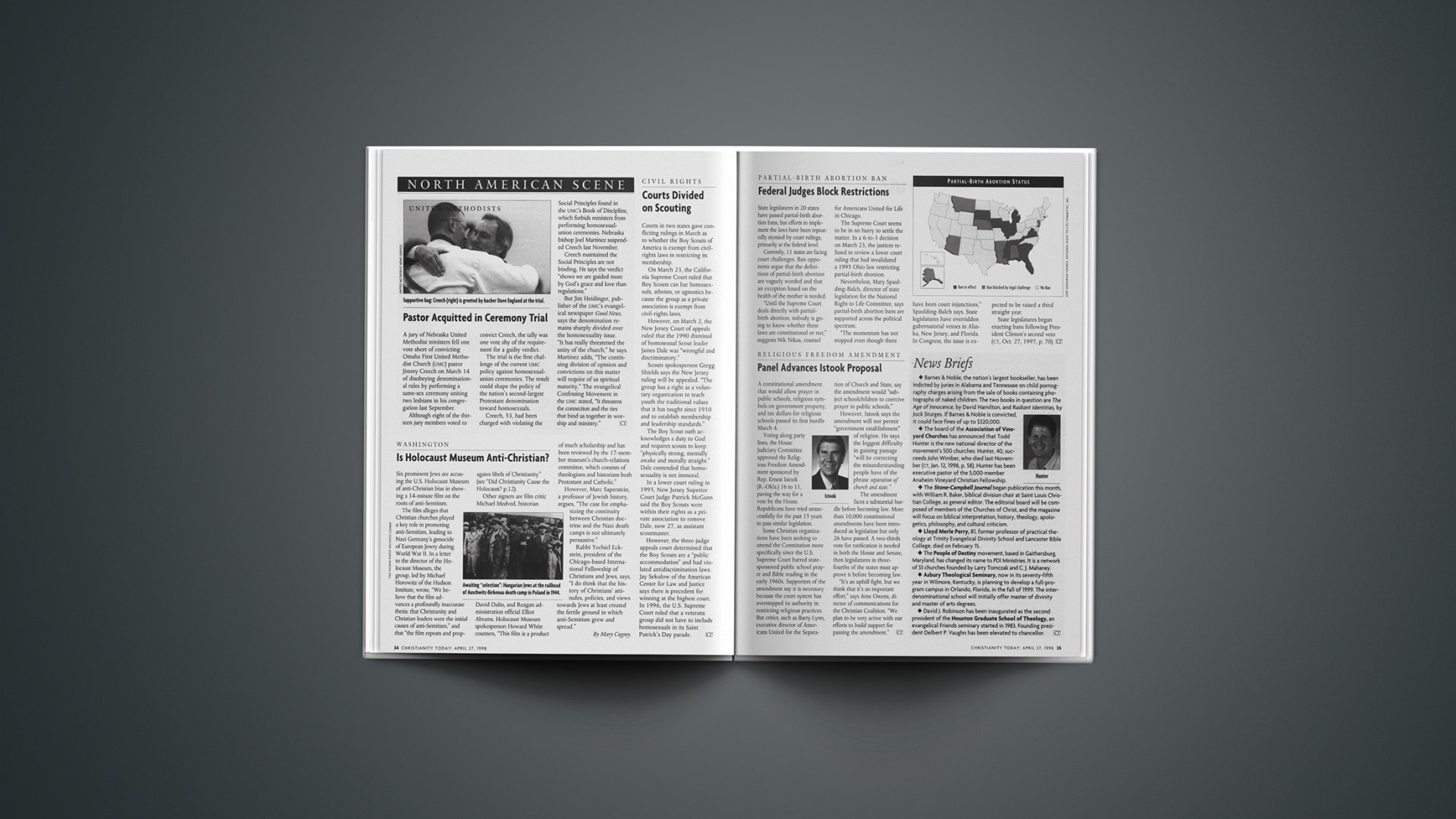Six prominent Jews are accusing the U.S. Holocaust Museum of anti-Christian bias in showing a 14-minute film on the roots of anti-Semitism.
The film alleges that Christian churches played a key role in promoting anti-Semitism, leading to Nazi Germany’s genocide of European Jewry during World War II. In a letter to the director of the Holocaust Museum, the group, led by Michael Horowitz of the Hudson Institute, wrote, “We believe that the film advances a profoundly inaccurate thesis: that Christianity and Christian leaders were the initial causes of anti-Semitism,” and that “the film repeats and propagates libels of Christianity” (see “Did Christianity Cause the Holocaust? p.12).
Other signers are film critic Michael Medved, historian David Dalin, and Reagan administration official Elliot Abrams. Holocaust Museum spokesperson Howard White counters, “This film is a product of much scholarship and has been reviewed by the 17-member museum’s church-relations committee, which consists of theologians and historians both Protestant and Catholic.”
However, Marc Saperstein, a professor of Jewish history, argues, “The case for emphasizing the continuity between Christian doctrine and the Nazi death camps is not ultimately persuasive.”
Rabbi Yechiel Eckstein, president of the Chicago-based International Fellowship of Christians and Jews, says, “I do think that the history of Christians’ attitudes, policies, and views towards Jews at least created the fertile ground in which anti-Semitism grew and spread.”
Copyright © 1998 Christianity Today. Click for reprint information.










